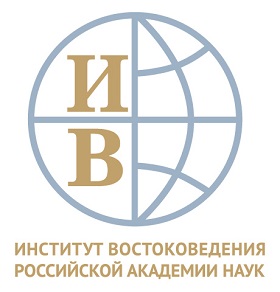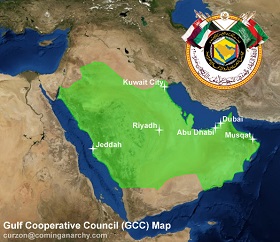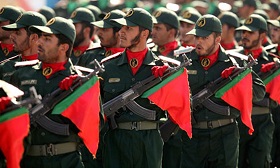Introduction
In May 2015, the Russian government removed political and legal barriers to the sale of the S-300 missile system to Iran, paving the way for a commercial agreement and subsequent delivery. This highly controversial decision led to extensive commentary from many different stakeholders, including the governments of the US, Israel, Iran, and the Gulf Cooperation Council (GCC) countries.
Russian and GCC commentators are well-acquainted with the Iranian and Western views regarding this decision. However, Russian and GCC commentators are comparatively uninformed about each other’s perspectives regarding this key development due to the nascent nature of relations between the two. This report aims to remedy this communication lacuna by furnishing readers with Russian and GCC perspectives on the issue, delivered by researchers specializing in Gulf strategic issues.
The views expressed below represent the views of the authors, and they do not necessarily represent the views of the institutions to which they are affiliated, or of their respective governments.
A Russian Perspective
Elena Melkumyan and Andrew Derbenev, Russian Academy
of Sciences
The modern world is going through a difficult transition regarding international stability. What will be the new world order? Time will tell. However, it is already clear that in the formation of the principles of its organization, the most important factor will be the historical experience of nations and peoples, in which their idea of a just and secure world order has led to the development of criteria for the identification of threats and methods to counter them.
The security of states in the Middle East lies at the junction of the interests of all powers in the region. Russia, as a member of the UN security Council, closely monitors the conditions of a turbulent environment, especially in what are complex national and religious communities. Russia’s focus is on points of common interest, and the long-term prospects for the sake of preserving security.
Iran’s interest in Russian air defense systems is largely due to its geographical proximity to sources of current threats, and it may be the beginning of a dialogue among the Islamic countries to establish in the Middle East their own missile and air defense systems.
The contract between the Russian Federation and Iran concerning the delivery of Russian S-300 was signed in 2007. It was suspended in 2010 in the context of UN Security Council sanctions against Iran developing its nuclear program. At that time, President Medvedev, who was the key figure in the Russian hierarchy, was trying to ameliorate relations with Western partners after the Georgian crisis. Iran responded by filing a US $4 billion international arbitration suit against Russia in Geneva.
In April 2015, President Putin lifted a ban on supplying Iran with these sophisticated systems. Explaining this step, he said that Iran is “demonstrating very high flexibility and clearly wishes to reach a compromise on this nuclear program, which is why Moscow lifted its own ban”. Russian authorities insisted that the missile system is exclusively defensive.
The Russian government’s willingness to justify the decision sparked condemnation from Israel and concern from Western states and Iran’s Arab neighbors. In his statement, Russian Minister of Foreign Affairs Sergei Lavrov declared on 13 April 2015, immediately after the publication of Presidential Order: “the S-300 has exclusively defensive characteristics; it cannot be used against any country and cannot be a threat to anyone’s security, including Israel.”
Lavrov, in a radio interview with Sputnik, tried to downplay the impact of the sale of the S-300 to Iran. Lavrov declared: “The S-300 cannot be used for protection against nuclear weapons”, “The S-300 is only good for protection against non-strategic missiles, and against air strikes.”
However, he then clarified that, with the S-300: “those who want to deliver a strike at Iran will have to think at least twice before doing it.” Lavrov continued: “The developments in Yemen and the rest of the region point to huge risks. We don’t want Iran to become another target for the illegitimate use of force.”
The critical attitude of different countries to the agreement forced the Russian authorities to speak about refraining from the immediate delivery of the system. The TASS news agency quoted a Foreign Ministry official, Sergei Ryabkov, a deputy foreign minister as saying: “It is more important that a political and legal decision, which opens up such a possibility, is taken”. Yevgeny Lukyanov, deputy head of Russia’s Security Council, confirmed: “The decision on delivering S-300 to Iran has been taken but the realization of the project will take some time.”
Russia has offered Iran its latest Antey-2500 anti-ballistic missiles instead of the less powerful S-300. According to the company that makes Anteys, Almaz-Antey, the Antey-2500 can engage missiles travelling at 4500 meters per second, with a range 250 km (150 miles). The S-300 missiles have a 125-miles range.
Russian-Iranian relations in the military field have a long history. Russia, together with China, became the main suppliers of weapons to Islamic Republic when the Western countries refused to develop military ties with it after the Islamic revolution.
Iran is the main strategic ally of Russia in the Middle East. The two countries have similar positions concerning important regional issues: they support the Asad regime in Syria, they criticize air strikes against ISIL in Syria without coordination with the official powers of this country, and they are against the use of force in Yemen.
Russia does not participate in maintaining security in the Gulf region. The Arab Gulf states consider the USA as a main ally in security cooperation and as a guarantor of regional stability. The commitment of the United States to the security of the region includes a range of areas such as presence of thousands of American military personal, numerous military common exercises every year, missile defense, maritime security, cyber security, and border security. The Arab countries together with the USA are participating in the fight against terrorism. They are preventing the flow of foreign fighters and financing to conflict zones, as well as countering the evil ideology of ISIL.
The Russian potential for playing a significant role in defensive arrangements in the Gulf region is quite problematic. First of all, there is the lack of Russian involvement in such matters historically. Russia is interested in selling weapons and military techniques to the Arab Gulf states, but it is difficult for Russia to compete with Western countries in the field of arms sales. This explains the willingness of Russia to develop military cooperation with Iran. It may encourage the Arab states of the Gulf region to strengthen ties with Russia in the military field and sign new contracts on weapons delivery to maintain balance with Iran.
Russia has a complicated situation on the global level due to Western sanctions against it, caused by the Ukrainian crisis, and this explains why the Russian establishment is trying to increase its cooperation with its traditional partners, one of them being Iran. It is not only important for Russia politically, but it also has a commercial value. In 2014 Russian foreign arms sales totaled US $15 billion.
After the lifting of sanctions from Iran, Russia will try to prevent the development of a relationship between Iran and the USA, and it will increase its own cooperation with Iran not only on the bilateral level, but in the framework of the Shanghai Cooperation Organization, of which Iran will become a member with the help of Russia.
A GCC Perspective
Omar Mahmood, Bahrain Center for Strategic, International and Energy Studies
The future of many states in the Middle East today is uncertain. Terrorism and civil conflicts within states have spread far and wide. The GCC view these threats with increasing caution, with many states having already been the target of terrorism and external interference. While many of these problems are rightfully attributed to the political systems within many of the states in the Middle East, such as the rampant corruption and fragile social fabrics, the extent of Iran’s belligerence should not be underplayed.
Nations like China and Russia have historically played a limited role in the region, apart from a few instances, and have for the most part benefited from the US presence and its effects on the global economy; especially in regards to the export of oil. While there are recurring talks of the supposed US drawdown and changing regional dynamics, Russia does have the chance to play a bigger and more effective role in the region.
Recently, Saudi Arabia signed a commitment with Russia to invest up to US $10 billion on various projects, and as part of the agreement, Russia too will invest in the Saudi Arabian market. Russian trade and economic commitments with other GCC states have also increased over the last few years. In 2014 alone trade between Russia and the United Arab Emirates grew to over US $2 billion. Just last year Bahrain signed a number of MOUs with the Russian federation. Bahrain’s Prime Minister Shaikh Khalifa bin Salman AlKhalifa also recently asked Russia to move closer to its allies (Arab states) in the region and to increase its cooperation with them.
While there are clearly many positives and advantages to this relationship, it is also quite a complicated and potentially problematic one due to Russia’s relations with Iran. The GCC states view Iran and its actions in the region as a destabilizing factor. Iran’s support for Bashar Al-Asad (with Russian backing), its support of terrorist proxies throughout the region, and its interference in the affairs of other states has greatly accentuated the problems that the region faces today.
This brings us to the issue of the potential sale of the S-300 (SA-20) systems and the recent news of the antey-2500 (SA-23) to Iran. While the Russian Foreign Minister Lavrov has stated that the sales of these missiles are intended only for defensive purposes, many in the region are clearly concerned. From an Arab point of view, and unfortunately for Iran, in the international arena actions do speak louder than words and Iranian actions throughout the region bring about doubts as to the ways such a system could be used.
The S-300 and antey-2500 have ranges from 150 km to 2500 km effectively covering key and vulnerable areas of the GCC. It should also be noted that these are mobile systems, and in the event of a conflict, could potentially be placed at strategic points affecting all commercial movement of aircraft. The strategic placement of these systems, such as on Lavan Island, Abadan and Sirik for example, would cover major GCC cities and energy infrastructure.
These defensive missile systems, in addition to Iran’s continually growing arsenal of short and medium range ballistic missiles, together pose a huge and tangible threat to the security of the GCC. The GCC states would be forced to counter such measures by increasing their own buildup of advanced military equipment. Unfortunately, in a region which already faces such destabilizing forces, an arms race would further increase the risks of a potential conflict.
An issue which has truly plagued relations between Iran and many of its neighbors since the Iranian Revolution and still today is its open and active support for various terrorist designated groups and proxies all over the region. In 1981, a group named the Islamic Front for the Liberation of Bahrain attempted to carry out a coup, which the authorities successfully thwarted, resulting in the arrest of many of its members The government of Bahrain accused Iran of being behind the plot, with plenty of evidence [1].
Bahrain and Saudi Arabia have repeatedly accused Iran of interfering in their affairs and of supporting groups who wish to overthrow the monarchies. In fact, some Iranian officials have gone as far as to claim Bahrain as Iran’s 14th province. Furthermore, Hezbollah associate groups in the GCC states have carried out a multitude of attacks since the 1979 revolution. Saudi Hezbollah and Hezbollah Al-Kuwait have attempted and successfully conducted a series of attacks against Saudi government and security personnel [2]. Iran has continuously worked to undermine the Bahraini and Saudi governments behind the scenes by trying to influence portions of their Shia communities. Bahrain has also accused Iran’s Revolutionary Guard Corps of training its citizens to carry out attacks against the state [3]. The most well-known attack orchestrated by a proxy of Iran on the GCC was the Khobar Tower bombings, which killed Saudi civilians and US Servicemen and injured hundreds of citizens. These are just a few incidents in a long list of terrorist related activity either directly or indirectly sponsored by Iran.
In March of 2014, Jordan and Russia signed a US $10 billion agreement to build the first nuclear power plant in Jordan. This is another entry point for Russia in to the region with a country that has excellent relations with the GCC states. Currently Jordan faces an uncertain future with the rise of ISIS in Iraq and Syria and the influx of refugees due to the policies of Iran’s proxy governments in Syria and Iraq. Just recently, Jordanian officials discovered and countered a terrorist plot carried out by an individual with links to Iran’s Revolutionary Guard Corps [4]. This growing tide of terrorism and instability can potentially not only end a such a lucrative deal between the two states, but can also pose a substantial risk to the region if this project does go ahead.
Russia and the GCC have a common concern regarding the threat of terrorism. Russia has itself been victim to a number of terrorist attacks in its cities and with its servicemen in neighboring states, mainly in the Caucuses. Furthermore, Russia today faces an increased risk, especially from those who have left Russia and other former Soviet states to take part in the on-going conflicts in Syria and Iraq. Many of these individuals will return back with new battle experience and a further cause of agitation against Russia due to their perceived policies and relations with Iran. Recently, it has also emerged that Iran has been directly sponsoring and arming the Taliban in Afghanistan. According to Afghan officials Iran has increased its supplies of weapons and ammunitions and is also recruiting and training their fighters, which poses major security risks to the already troubled nation [5]. Tehran too has been known to host senior Al-Qaeda figures in the past, in what could only be seen as a strange relationship of convenience [6].
While Russia does wish to increase its sales of military equipment to the GCC states and wider Arab world, as it has recently agreed to do with Egypt, it will not be able to replace the United States anytime soon. Furthermore, while the GCC states have shown a clear willingness to deal with and increase cooperation with Russia, Russia’s continued support of Iran, while it engages in un-neighborly actions, could isolate it. It should be noted that in the public arena in the wider Arab world due to Iran’s actions and Russia’s staunch support of it, the view of Russia has drastically suffered.
Russia should take advantage of its good relations with Iran and seek to influence it to play a positive role rather than the negative one it has played up to now. Currently, Russia too finds itself in an increasingly isolated position in the world, especially with Western sanctions against it, due to its actions in Ukraine. In the Middle East and the GCC, it has an opportunity to increase and better its position both financially and politically, as has already been occurring, though there is plenty of room for these ties to grow.
The GCC states would like to see a new approach from Russia regarding its policies in the Middle East. Up to now there have been some clear misunderstandings and misperceptions between both sides regarding their intentions. The Russian-Iranian relationship will always be a tricky matter when it comes to the GCC and while Russia can try to maintain cordial ties with all states in the region, it cannot eat the cake and have it too as long as the region continues to be in turmoil. Russia should keep in mind and take seriously the view of the GCC states in many of these matters and should understand the negative effects that any misuse of Russian sold weaponry by Iran could have on the region and this nascent relationship. There is plenty of room for cooperation and coordination to grow between the GCC and Russia, especially when it comes to economic trade and issues related to terrorism, though it remains to be seen how the finally completed nuclear deal with Iran further affects this relationship.
1. AlHasan, H. T. “The Role of Iran in the Failed Coup of 1981: The IFLB of Bahrain”. The Middle East Journal. Volume 65, Number 4, Autumn 2011
2. http://www.washingtoninstitute.org/policy-analysis/view/iranian-and-hezbollah-threats-to-saudi-arabia-past-precedents
3. http://www.aljazeera.com/news/middleeast/2014/01/bahrain-accuses-iran-training-rebels-201413144049814960.html
4. http://gulfnews.com/news/mena/jordan/jordan-says-it-has-foiled-iran-backed-bomb-attack-1.1546022
5. http://www.wsj.com/articles/iran-backs-taliban-with-cash-and-arms-1434065528
6. http://www.reuters.com/article/2013/04/24/us-iran-alqaeda-idUSBRE93N18720130424












